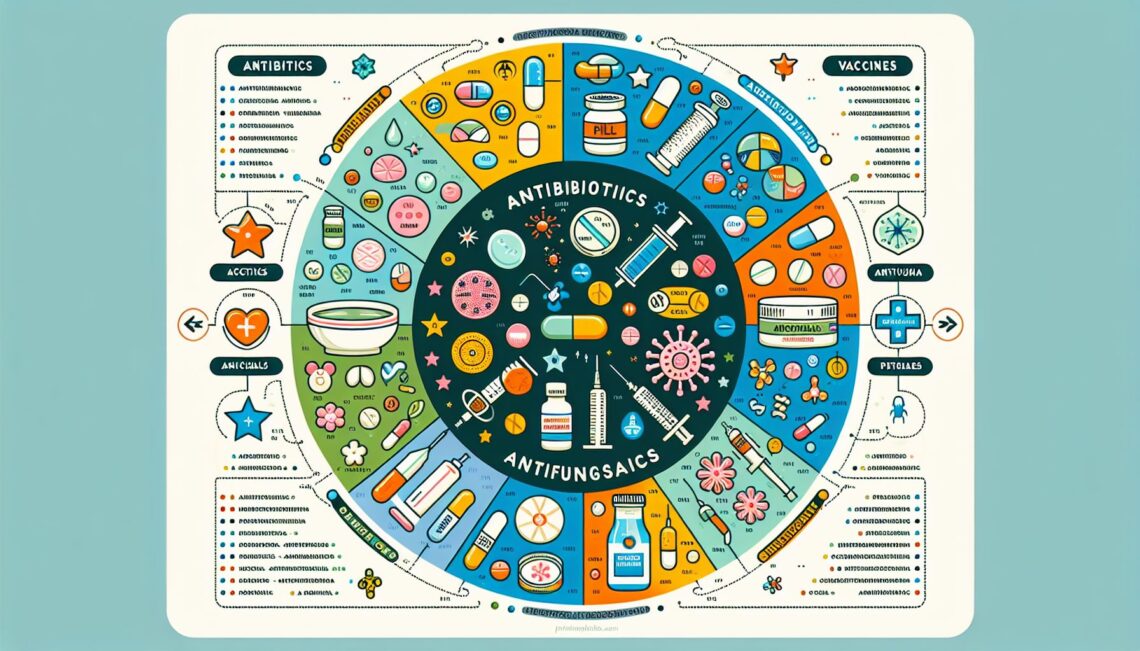
Understanding Different Types of Medicines
Medicines play a crucial role in treating various ailments and improving our overall health. From over-the-counter remedies to prescription drugs, the world of medicine is vast and diverse. In this article, we explore the different types of medicines available and their uses, ensuring a better understanding of how they work to alleviate our health issues.
Introduction
Medication comes in many forms, each designed to target specific health conditions and symptoms. Understanding the different types of medicines empowers us to make informed decisions about our health and enables healthcare professionals to prescribe the most suitable treatments. Let’s delve into the various classifications of medicines and their corresponding benefits.
Body
Over-the-counter (OTC) Medicines
The most readily accessible medicines are those available over the counter. These medicines, often found in pharmacies or supermarkets, do not require a prescription and can be purchased by the general public directly. Common examples include pain relievers (e.g., paracetamol), cough syrups, antacids, and allergy medications.
Prescription Medicines
Prescription medicines are those that require authorization from a healthcare professional before they can be obtained. These medications are more potent and usually target severe or chronic health conditions. Doctors assess patients individually to determine the most suitable prescription drugs, taking into account factors such as the patient’s medical history, allergies, and possible drug interactions.
Vaccines
Vaccines serve a unique purpose in preventing diseases rather than treating symptoms. By introducing small amounts of a pathogen into the body, vaccines stimulate the immune system to develop defenses against future infections. Vaccinations have been successful in eradicating or drastically reducing the occurrences of numerous life-threatening diseases, such as polio, measles, and smallpox.
Herbal and Alternative Medicines
Herbal and alternative medicines have gained popularity in recent years. These treatments rely on natural products, such as plants and herbs, to alleviate symptoms or promote overall well-being. While some herbal remedies have been scientifically proven effective, it is important to remember that their safety and efficacy may vary. Consulting with a healthcare professional is advisable before using any herbal or alternative medicine.
Topical Medicines
Topical medications are applied externally and primarily treat symptoms on the body’s surface, such as the skin or eyes. Examples include creams, ointments, lotions, eye drops, and patches. These medicines are absorbed through the skin or mucous membranes and are effective in treating conditions like rashes, inflammation, and infections.
Combination Medicines
Some medications are formulated by combining two or more active ingredients. These combination medicines simplify treatment by addressing multiple symptoms or conditions simultaneously. For instance, a cold and flu medication may contain decongestants, analgesics, and antihistamines to alleviate various symptoms associated with the common cold and flu.
Conclusion
Understanding the different categories of medicines is essential for making informed decisions about our healthcare needs. Over-the-counter medicines like pain relievers and antacids provide quick relief, while prescription medications are tailored to treat specific conditions. Vaccines are invaluable in preventing diseases, and herbal or alternative medicines offer alternative treatment options. Topical and combination medicines offer targeted relief for surface symptoms and multiple conditions, respectively. By familiarizing ourselves with these various types of medicines, we can better navigate our health choices and seek appropriate treatments when needed. Remember, always consult with a healthcare professional before starting any medical treatment.
You May Also Like

Understanding the Different Types of Medicines
April 23, 2024
Understanding the Different Types of Medicines
February 2, 2024

